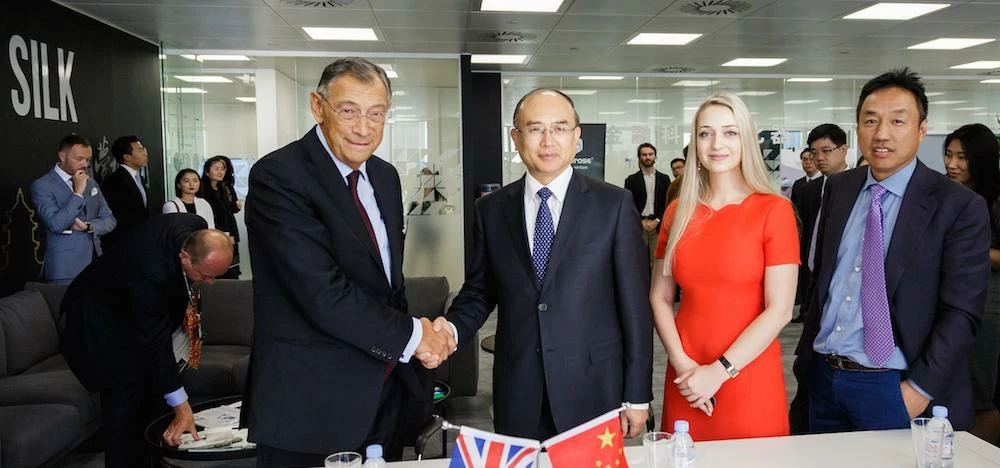Five years ago, the thought of writing an opinion piece on gender dynamics in VC wouldn’t have occurred to me. I was the male CEO of a Swedish insurance company at the top of my career. Diversity was not at the top of my priority list.
But I wasn’t happy. I began to realise that I wasn’t living as my authentic self, and I made the decision to transition to become a woman. The process was a scary prospect — I feared ridicule and losing everything I’d worked for in my career.
But I came out of it on the other side as Caroline — a woman and the person I truly am.
This process was huge on a personal level for me, but it’s also taught me a lot about the way we work as men and women in this industry. And now, from my vantage point as one of Europe’s few female VCs, I’m hyper-aware of male privilege — and all the things VCs should be doing to level the playing field.
What I've noticed as a woman
As a woman I’ve noticed that men see me as less predictable, particularly when it comes to the kind of “you scratch my back, I’ll scratch yours” inside dealmaking that’s common in the male-dominated world of business. I tried to avoid this kind of thing as a man, but now I feel actively excluded from it.
Another change that’s happened since I've been a woman is a big increase of proposals in my inbox asking me to attach my name to various good causes.
Whether it’s being an ambassador for something or a board member for something else, I am seeing a lot more requests for work that usually comes without any financial reward attached. I can’t recall one single occasion when I received such an invitation as a male CEO, which is a shame, as men can also be valuable figureheads in positions like these, rather than always relying on a crowd of good-hearted women.
Beyond these personal observations, it only took living as a woman for a few months to clearly realise the subtle effects of the privileges I’d become used to as a man.
It’s about who gets noticed in the office, who gets heard in meetings and whose opinion is more likely to affect the outcome of a decision. Not to mention expectations around who will make sacrifices to look after the family, who will relocate for who and what a “successful” career looks like.
These things might seem small, but the cumulative effect is a playing field where the men play a home game, and the women play an away game. Every day, year after year.
These things might seem small, but the cumulative effect is a playing field where the men play a home game, and the women play an away game.
Representation matters because we relate easier to those who share our identity
While some changes like this have been tough to deal with, others have been hugely positive. The most transformative difference I see is in my relationships with women, where I feel truly included.
My interactions with women, and also LGBTQ+ people of all genders, have become so much more authentic, going far beyond the slightly formal relationships I had with people outside my own gender before.
I now realise how much representation matters, as we often relate easier to people who share our identity.
It takes me back to my days as a cofounder during the dot-com boom, when I successfully pitched our small insurtech to several VCs. The investors were always men like us, trading the same jargon around hype and the “home run” potential of the business.
Now I realise how much it helped that I was a man like them, particularly for coming across as “likeable” as we tried to close the deal.
An urgent need to rebalance and broaden deal flow
Since re-entering the VC arena as an investor, I can see the gendered stereotypes playing out between founders and VCs through a different lens than last time — the lens of a woman.
I see that we’ve not progressed much in terms of our understanding of unconscious biases, which we see borne out in the painfully small share of VC funds that go to female or diverse founders.
But becoming aware of our biases, and trying to compensate for them in pitch meetings, is just one small step.
More urgent is the need to rebalance and broaden the deal flow that we see as investors.
Searching for underrepresented founders has become a priority for me, not only because of personal interest but most importantly because of the vast amount of untapped potential out there. And I didn’t have to wait long to see things happening. Since joining Wellstreet as a VC partner in January, there has been a flurry of pitches in my LinkedIn mailbox. Some 90% of them come from female or diverse founders — evidence that representation matters.
I’m happy to now see a growing interest from the VC community to actively target underrepresented founders. Our industry both can, and should, go the extra mile to represent the full breadth of founders from the societies in which we operate. Successfully doing so will lift us all to the next level of inclusion and business performance. I’m happy to be part of that journey, and I hope to be joined by all of you in the VC industry.


